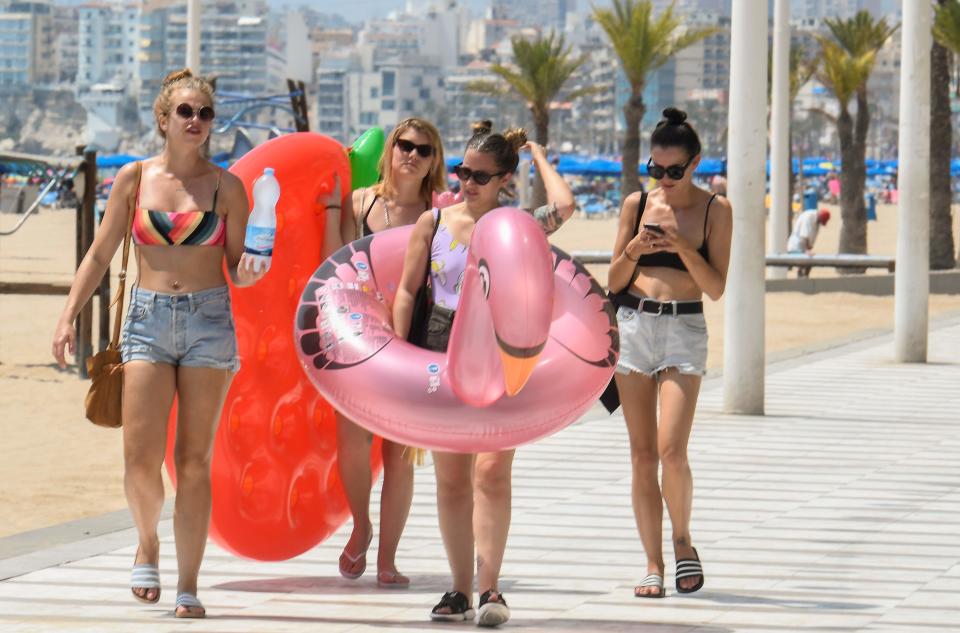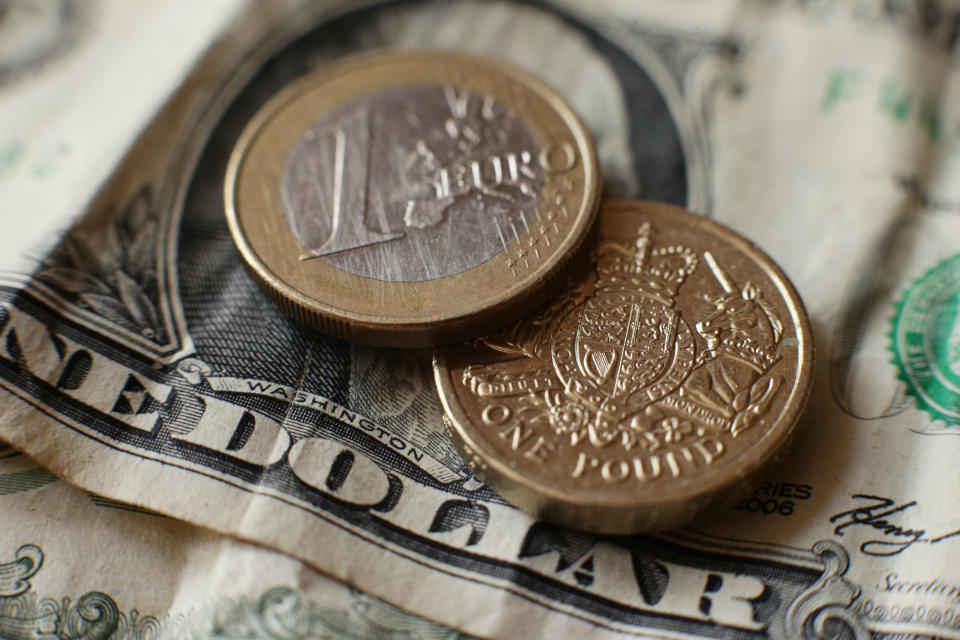Four travel money tips as the falling pound pushes up holiday costs

The pound has fallen significantly in value in recent days and months, with the UK currency now at its lowest rate against the dollar in more than two years.
Sterling is even reported to have sunk below the value of the euro at airport exchange bureau in the UK, in what Alana Parson of currency card firm Caxton called “daylight robbery.”
The decline is linked to fears a no-deal Brexit could derail the economy, but its impact goes well beyond traders as holidaymakers are also getting less value for the pound in their pocket this summer.
Rob Stross, chief managing officer of pre-paid travel card firm WeSwap, said sterling’s fall could “add up quite significantly” for Brits now paying far more to get out many other currencies than last summer.
But Stross said tourists also make common mistakes that make the problem worse, and could at least save hundreds of pounds over a several-week holiday by avoiding them.
1. Don’t leave it to the airport or when you get there
“Generally the worst thing to do is leave it late. People should be aware of the other options,” according to Stross.
Stross recommends sorting out travel money well in advance, using a price comparison site to see where is offering the best rates.
He said there are significant extra charges and worse exchange rates at airports and ATMs abroad, giving you less money for every pound converted.
READ MORE: Pound faces worst month since 2016 over Boris Johnson’s no-deal Brexit planning
Similar charges also apply when using most UK debit cards abroad.
“Lots of companies advertise ‘commission-free, but hide the commission in a higher exchange rate,” he said.
A WeSwap survey suggests almost a third of Brits withdraw cash on arrival abroad, often facing a non-sterling fee of up to 3% and a 2% or £1.50 overseas ATM fee.
2. Always pay in the local currency

Many tourists are left scratching their heads when ATMs or card machines overseas ask whether they would like to pay in local currency or sterling, also known as GBP.
But Stross said paying in the local currency is usually best, as it reduces the chances of being charged a hefty commission and poor rates.
“If you are offered the choice of paying in local currency or GBP, as a general rule always accept the local currency. If you don’t you are the behest of the bank who have a stupid exchange rate on it,” he said.
3. Use a pre-paid currency card
Stross suggests using a pre-paid currency card, which offer an alternative to carrying large amounts of cash and risking further pricey withdrawals abroad if you run out.
Cards like the well-known Post Office Travel Money card allow users to pre-load foreign currency months in advance, as well as top them up while abroad.
Stross said services like his company’s Mastercard let users pre-load sterling and set it to convert later only if the rate improves.
4. Check major political events and hedge your bets
“Be aware of any political events coming up. Any uncertainty generally means fluctuation in currency,” said Stross.
Stross suggests hedging your bets if there is a major political event due before your holiday, such as an election or Britain’s scheduled Brexit date on 31 October.
That means withdrawing some cash before the big event and some afterwards, so not all of your money suffers if the pound unexpectedly falls.
“If you’re going away, don’t get it all on the same day. Maybe do half two weeks in advance of something like an election, half two weeks after,” he suggested.
He also said it could be worth looking at trends in currency to see if the pound is falling or unusually high or low compared to the past, but future trends are obviously hard to predict.
“The average person also won’t necessarily have time to keep a close eye, and no-one knows what’s going to happen in a few days, let alone the summer,” he added.

 Yahoo Finance
Yahoo Finance 